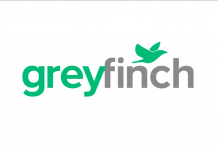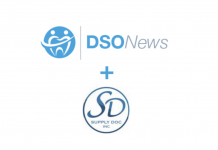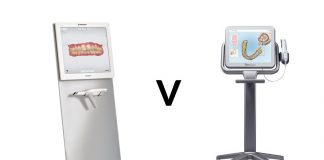DSO News recently sat down with April Brissette, the Chief Credit Officer at Bankers Healthcare Group to learn more about them and their new SBA loan program for dentists.
Below is our conversation:
JB: Hello April, thanks for taking the time to sit down with me to explain the different types of financing available to dental practices and dental groups.
AB: Thank you for having me!
JB: For those who do not know, you are the Chief Credit Officer of Bankers Healthcare Group (BHG). BHG is a niche lender. What made you decide to focus on the healthcare sector and specifically, practitioners.
AB: BHG’s ownership team decided to focus on lending in the healthcare space since 2001 when they started the company. They did this for a number of reasons: it’s an eternally growing sector that consumers will always have a need for; healthcare professionals’ income is well above average, and that gives them better borrowing power; and medical professionals have great job security.
A few years ago, we made the decision to expand lending to all licensed professionals, including CPAs, architects, and financial advisors, just to name a few. This has been a very positive experience for us, and our new customers.
While we still focus on serving licensed healthcare professionals, we’re excited to build off of the success we’ve gained there by applying it other licensed industries.
JB: Lending can be confusing for even the brightest of minds. What are all of the different financing options presently available to those practicing dental?
AB: Many banks and financial institutions have programs tailored specifically for healthcare professionals, and dentists are extremely sought-after customers. Dentists have access to just about any type of financing they need, be it a credit card, personal loan, commercial loan, and everything in between.
JB: How important is it for a lender to match a product with a borrower and what kinds of questions should a dentist or group be asking of prospective lenders?
AB: It’s extremely important for a lender to find the right product for the borrower. Listening to their needs is the first step in getting there. How much do they need and what is the purpose? Those are the two main questions that can help a lender like BHG figure out what product the customer needs.
Dentists should ask their lender the loan amount, timeline, and if terms differ by product. This information may help them decide which product is best for them. For example, if they need $10,000 for a piece of equipment, and they need it quickly, maybe a credit card with a great rate is what they need. If they need $500,000 to do an office buildout, maybe an SBA loan is best.
JB: I was shocked to learn through your colleague what an SBA loan can look like and how long of a term you can have. If I recall correctl, BHG became one of only 14 non-bank lenders approved for SBA lending. What does this mean for dentists in need of capital and who are interested in the new SBA lending available through you?
AB: That’s right! In November 2018, BHG expanded into small business lending through our wholly-owned subsidiary FundEx Solutions Group with a license to offer the SBA 7(a) Loan Guarantee Program. Getting approved for one of the 14 non-bank licenses was a huge milestone for us! And you’re right — borrowers can enjoy terms up to 25 years if real estate is involved in the transaction, and 10 years otherwise. What this means for our customers is that we can now meet the financing needs for amounts up to $5 million through FundEx Solutions Group. BHG generally caps exposure by
We’re really excited to dominate the market in the SBA space! It’s really important for dentists to know that an SBA loan doesn’t have to be laborious or lengthy. We’re applying the same speedy, hassle-free philosophy that we have used for 17 years at BHG to the SBA lending process.
JB: What exactly is an SBA loan and how does it differ from a regular term loan?
AB: SBA loans are partially guaranteed by the government. This means that the lender isn’t carrying 100% of the risk on the loan, provided they have complied with the rules and regulations of the program. Depending on the type of SBA loan it is, the lender can get up to a 75% guarantee, meaning that the government covers 75% of the loss on the loan, should it default. The purpose of the program is to aid, counsel, assist, and protect the interests of small businesses. It is a way for lenders to approve loans that may otherwise result in a decline.
A good example is someone who doesn’t have collateral for the loan. Many lenders require a certain amount of collateral coverage. If you’re a dentist and you want to purchase a practice, the biggest assets associated with that is the good will and patient base. That is not a tangible for a lender to fall back on in the event of default. For that reason, many lenders can’t get comfortable with, let’s say, a $1 million loan. That’s where the SBA program comes in. Lack of collateral is a great reason for that lender to put the loan through the SBA program.
It’s important to note that a customer can only get an SBA loan, if they would otherwise be declined for conventional financing.
JB: Is the application process the same or different … and if different, then in what ways?
AB: The application process may or may not be different, depending on the lender. Some banks have extensive processes in place for their traditional loan programs. For those lenders, the SBA program may not be much different. But generally speaking, there is more information required for an SBA loan than there would be for conventional financing. That’s why it’s so important to find a lender like FSG that does the heavy lifting for the customer and leverages technology to get a lot of the required information.
JB: What can the proceeds of an SBA loan be used for?
AB: Loan proceeds can be used for just about any commercial purpose. We most frequently see debt consolidation, start-up businesses, and acquisitions. Borrowers typically add some working capital in there, too, for improvements and expansion.
JB: Do you mind walking us through what a typical SBA loan would look like for a dentist wanting to buy up a few offices using $5M in SBA-backed funds? Based on the persona of an average borrower and profitable practice, what would those terms potentially look like?
AB: Assuming there is no real estate involved and based on the current prime rate, the borrower could expect a 10-year term with an interest rate of around 8$-8.25%. If real estate is involved, the term could be up to 25 years, with the same interest rate. Some lenders impose pre-payment penalties when doing the longer terms, but they typically aren’t too harsh or for long periods of time. There are some SBA fees as well, but those can be financed into the transaction and differ by loan. The best part about a loan like this is that if the dentist already owns a practice, as your example shows, there is no down payment required! Some lenders still force that, but it is not an SBA requirement. At FSG, we often offer 100% financing for these scenarios.
JB: A lot of our readers are in the 3 to 5 office range and looking to level up. Of all financing options presently available to a dentist, what do you think is the best way to finance the purchase of a handful of options?
AB: I think an SBA loan is the best option because this type of loan you describe is tough to get approved for conventionally. As previously mentioned, most lenders are looking for collateral. Practice acquisitions typically have a shortage of collateral, which is why it’s tough to find financing. Also, as we talked about before, this is considered expansion in the SBA’s eyes. A down payment is not required by all lenders.
JB: If a dentist wants to be considered an ideal borrower, what should their life look like? What should their credit score be? What EBITDA are you looking for? How long do you look back at financials? Those are just a few factors that I can think of … feel free to add any you know to be important.
AB: The banking industry is often accused of wanting the borrower to be so perfect that they don’t need any money! That’s not the way we operate at BHG/FSG. What I can tell you is that every loan is like a fingerprint, no two are alike. But ideally, you want to keep your credit score above 700 in order to get good terms. Anything over 750 is great. Lenders will typically look at two to three years of financials, and then projections, depending on the scope of the project. Rather than discuss EBITDA, I think it’s more important to talk cash flow. [editor’s note: I should have known this … I’ve been saying “cash is king” for two decades now] If the business can support the proposed loan payment and everything else is in line (credit, financials), then the borrower has a great chance of being approved. Even if your credit is strong, you won’t get approved if on paper you cannot afford the loan.
JB: A dentist has been struggling with their finances. High student loan debt. The divorce but bit them. You know, all of those life events that can throw you off your financial track. As a result, their credit has taken a dive. What are the first three things they should do to rebuild?
AB: The first thing I would do is sign up for a credit monitoring program. I am partial to CreditKarma; I use it myself. It’s a truly free service where you can look at your credit report however often you want. It will give you alerts whenever anything happens (new account, late payment, inquiry), which gives the consumer the ability to jump right on any issues.
Secondly, you have to do your best to pay everything on time starting today. Once you’re out of the worst of it, you have to start the process of rebuilding. Making your payments on time is paramount. That may mean personal sacrifice or drastic changes to spending habits. Lastly, enlist the advice of a financial planner, and make sure they’re certified. I’d get some referrals from colleagues who have a good recommendation for who they’re using. Financial advisors are highly skilled in this area and can really help build a roadmap to set you up for financial success in the future.
JB: OK, I’m going to toss in a personal question because I’ve debated great minds over this. Should your credit card utilization ever go above 30% of available credit? If that number is inaccurate, what is the ideal available credit threshold to keep credit card spending under?
AB: Keeping your revolving utilization below 30% is going to give you the highest amount of points for your credit score in that category. Generally speaking, using 30%-50% of your lines will give you a “medium” impact on your score; 50%-75% is significant, and 75%+is substantial.
My advice is always to pay off your revolving balances monthly. That keeps your interest payments little to nothing but allows you to enjoy the rewards programs that many of the cards offer. Now, I understand that’s not always possible … things happen! If you can’t pay for your balance in full, do your best to keep the utilization under 30%. Try to use your credit cards for convenience, not necessity. If you really can’t get out from under the debt and it’s over 30%, explore the idea of consolidating it with a personal loan so that much more of your payment goes towards principal and your utilization goes back down to a lower percentage.
JB: I just had a thought … so going back to SBA loans … can a fresh dental school graduate potentially utilize one to purchase their first practice?
AB: Definitely!
JB: Would having no job and likely a lot of student debt dash that dream or is there hope?
AB: These wouldn’t automatically squash the chance of getting an SBA loan. But the practice they’re purchasing would have to be a profitable one, and they would have to have a minimum of 10% down, without borrowing. Those are big hurdles to get past.
JB: I’d hope earning potential is a factor. I’ve heard of so many horror stories of having to cobble money together from different lenders over a period of time to acquire or open their first practice
AB: Yes, this is sometimes referred to as “stacking” which can be dangerous.
JB: A great example of this is how your own exposure at BHG stopped at $300K for a borrower, while now you have more flexibility with the SBA lending, which can be in higher amounts … and if real estate is included, as it oftentimes is … then you can go up to 25 years. This sounds like the perfect product for a new graduate looking to enter private practice without making the DSO associate rounds longer than they’d hope because they have to save up. Is this up their alley?
AB: This is definitely a great
JB: Thank you for your time and insight, April. It has been a pleasure speaking with you and I appreciate you demystifying lending for our readers. Any parting words for them?
AB: It’s been great; thanks again for having me!
My only closing remark is that your credit is the single most important component of your financial health. It’s important to monitor it and maintain it at all times — much like our physical health.
As Chief Credit Officer and Secretary, April Brissette leads the day-to-day operations of
Brissette











